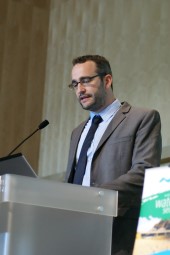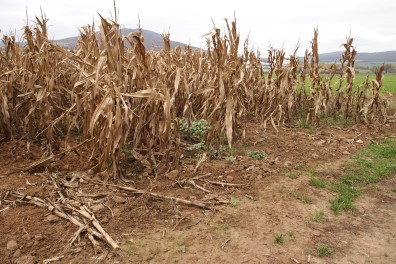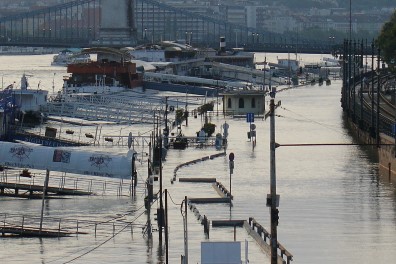 “WMO's and GWP’s relationship has always been close. WMO along with the World Bank was the intergovernmental organization that signed the Memorandum of Understanding with eight countries establishing the Global Water Partnership Organization (GWPO) as an intergovernmental organization. The Associated Programme on Flood Management (APFM) was established in the same spirit of collaboration as a joint undertaking of both organizations in 2001,” says Frederik.
“WMO's and GWP’s relationship has always been close. WMO along with the World Bank was the intergovernmental organization that signed the Memorandum of Understanding with eight countries establishing the Global Water Partnership Organization (GWPO) as an intergovernmental organization. The Associated Programme on Flood Management (APFM) was established in the same spirit of collaboration as a joint undertaking of both organizations in 2001,” says Frederik.
The APFM promotes an integrated approach to flood management in order to maximize the net benefits from the use of floodplains and minimize the loss of life. Together with now over 23 partners that form the support base of the programme, it provides support to countries and communities through its Helpdesk.
Based on the experiences of the APFM, WMO and GWP established the Integrated Drought Management Programme (IDMP) in March 2013 at the High-level Meeting on National Drought Policy. The IDMP’s objective is to support stakeholders at all levels by providing them with policy and management guidance through globally coordinated scientific information. The IDMP especially seeks to support regions and countries to develop more proactive drought policies and better predictive mechanisms.
Complimentary Reach and Expertise
The technical capacity of both WMO and GWP are complementary, and therefore reach different audiences. In the case of WMO these are primarily the meteorological and hydrological services, and for GWP it is the network of over 2,800 partners and the Regional and Country Water Partnerships.
“These are the champions of both programmes, they catalyze action on the ground. Since I started, I see my role to work together with my colleagues at WMO and GWP to respond to a demand for a smart approach to drought and flood management. Taking the impacts of floods and droughts on water, food and energy security into account, we can combine WMO’s and GWP’s complimentary reach and expertise to work with countries and communities”, says Frederik.
As agricultural, energy, and water managers face increasing uncertainty in providing basic services, both programmes aim to link practitioners with the science for improved forecasting and better planning.
“Hence, I also see our contribution to the Global Framework for Climate Services (GFCS) as crucial. The GFCS bridges the gap between climate information producers and the practical needs of policy makers, planners and other users, such as farmers. It aims to facilitate climate-smart decisions and we can support it in this quest”, says Frederik.
“Immense Resource”
Frederik says that there is a wealth of high-quality knowledge products offered on floods by the APFM, it is an immense resource, ready to be employed at the regional and country level. Clear benefits of the IDMP programme are also evident after the first year of implementation:
“Already in Central and Eastern Europe the regional IDMP CEE programme is providing practical advice on how droughts can be managed. Other regions are following suit with promising developments in the Horn of Africa, West Africa and South Asia, where the regions and countries are coming to the IDMP to develop their programmes”, says Frederik.


Top photo: View of Geneva, Switzerland.
Inset photo: Frederik Pischke giving a speech at the GWP Consulting Partners meeting in Stockholm in September 2013.
Bottom photo 1: Drought affecting crops in Central Europe.
Bottom photo 2: Flooding in Budapest in 2009.

